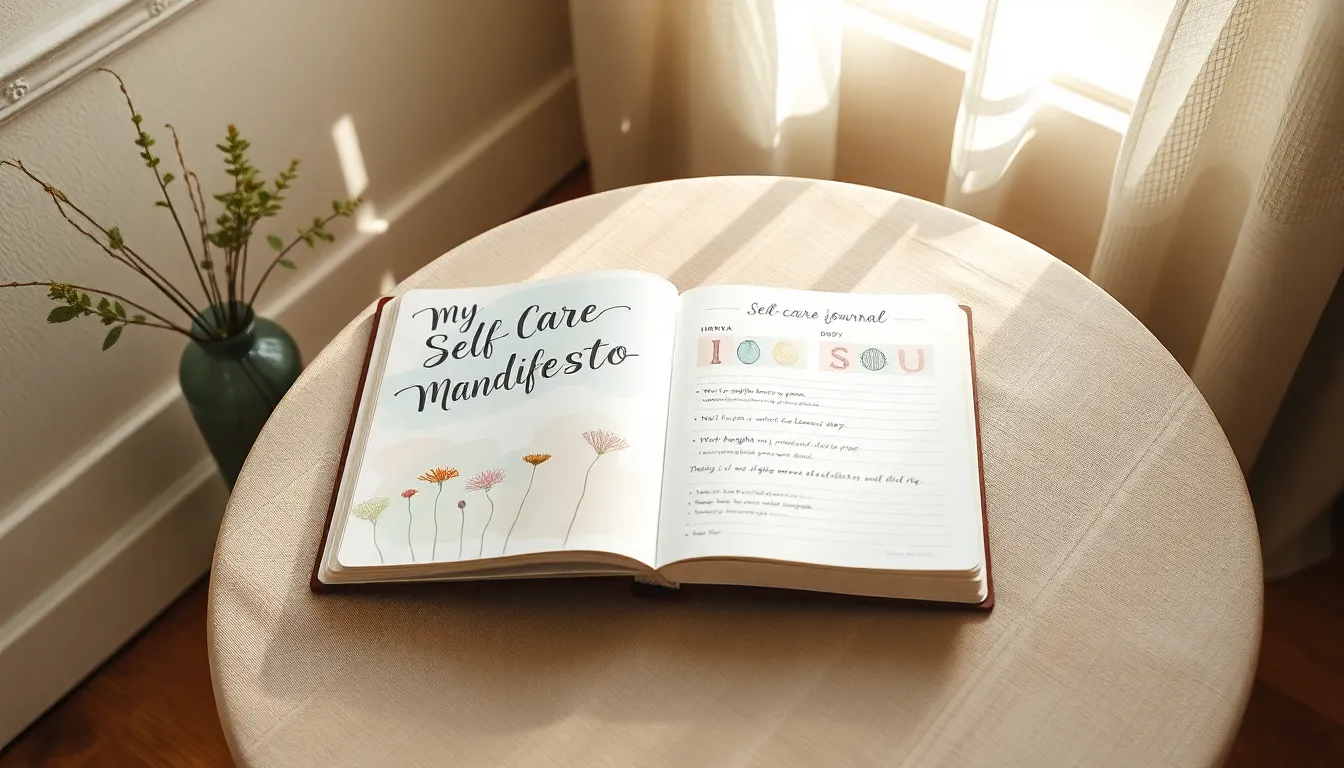In today’s fast-paced world, nurturing our mental well-being is essential. A self-care journal offers a simple yet powerful way to reflect, recharge, and reconnect with yourself daily.
By starting a self-care journal, you’ll discover clarity, peace, and deeper self-awareness. Embrace this journey to prioritize your well-being with gentle, meaningful reflection.
Select Your Journal Type

Consider a blank notebook for flexibility or a guided journal for structure. Choose what resonates with your self-care goals.
Try prompts like:
- “What am I grateful for today?”
- “How can I nurture myself this week?”
Let these guide your reflections and deepen your self-awareness.
Define Your Self-Care Goals

Clarify your self-care priorities by setting specific, realistic goals in your journal. Focus on one or two key areas, like improving sleep or reducing stress, and dedicate a page to outline your intentions.
Use prompts to guide your reflections and actions. Consider:
- What small steps can I take today towards my goal?
- How do I want to feel by the end of the week?
This keeps your journey focused and motivating.
Choose Thoughtful Writing Prompts

Begin by selecting prompts that inspire reflection and growth. Focus on the present moment with prompts like:
- “What am I grateful for today?”
- “How am I nurturing myself right now?”
Consider prompts that encourage emotional exploration. Explore your feelings with questions such as:
- “What emotion do I need to address today?”
- “How can I support my emotional well-being?”
Establish a Journaling Routine

Start by setting a consistent journaling time to create a habit. Choose a quiet moment, like morning coffee or nightly wind-down, to reflect and write.
Incorporate specific prompts to guide your thoughts. Try:
- “What am I grateful for today?”
- “How can I nurture myself this week?”
These focus your mind and encourage self-reflection.
Reflect and Adjust Regularly

Regular reflection helps you stay aligned with your goals. Set aside time weekly to review past entries and note any patterns or changes. This practice offers clarity and enhances personal growth.
To adjust effectively, consider these prompts:
- What small change can I make today?
- How do I feel about my progress?
Use insights to refine your self-care practices, fostering ongoing improvement.
Conclusion: Creating Beautiful Outdoor Spaces
In creating a self-care journal, we’ve explored five pivotal concepts to enrich your relationships: recognizing your emotional needs, setting healthy boundaries, nurturing self-awareness, practicing gratitude, and fostering continuous communication. By prioritizing these elements, you can cultivate a deeper understanding of yourself and, consequently, enhance your connections with others.
As a practical next step, consider dedicating just ten minutes today to begin your self-care journal. Reflect on one aspect of your relationships you’d like to improve and jot down your thoughts and feelings. This small commitment can be the first step towards a more mindful and fulfilling relational journey.
To ensure you stay on track, bookmark this article as a valuable resource. By doing so, you’ll have easy access to these insights whenever you need a gentle reminder or a boost of motivation. Remember, maintaining strong relationships requires ongoing effort and self-reflection.
Embrace this opportunity to invest in your emotional well-being and relationship success. With each journal entry, you’re not only prioritizing self-care but also laying the groundwork for healthier, more enriching interactions. Start today, and watch your relationships thrive.

